
No God-forsaken Places
There are no ‘God-forsaken’ places, only Church-forsaken places
This is a story about a church in West Englewood on the South Side of Chicago, fulfilling its role as a civic neighbour. Through the personal testimony of Jonathan Brooks, Senior Pastor at Canaan Community Church, we learn how a congregation, living covenantally within its neighbourhood, was able to seed and support transformational change.
Englewood, on the South Side of Chicago, is often portrayed as an area challenged by poverty and violence. Pastor Jonathan Brooks left home for college with no plans to return: “I had always narrated the story of my neighbourhood from its brokenness.”
But Brooks did return and his experience is one of blossoming in a shared, communal life. This is a story of the transformative power that comes from building local covenantal relationships.
Going through a crisis of faith pushed Brooks to go to Canaan Community Church. “It was there I reconnected with God. I started working with the youth in the church. That work connected me to the community in a different way. I ended up becoming pastor at the church in 2006.”
Over time, Brooks and his neighbours’ commitment to place led to transformational change. Their approach is characterised by genuine, loving relationships and investment in their community. Honest about the early days of his return, he speaks of his family ‘living like a fortress’, scared of the place, of the people, and he questioned God’s calling to him: ‘we built a house, but we didn’t get to live in it’.
It was only when he got to know people nearby that he realised who he was and what he could bring to the community. He had assumed God was calling him to change the neighbourhood, but quickly found that it was he who was to be changed by the neighbourhood. It was through building local relationships with his neighbours that he and his family were transformed.
One of the familiar pathways for churches attempting to stem the trajectory of decline is to focus on ‘growth’ and areas with ‘potential’. This can lead to an avoidance of places which at first look more difficult, the so-called ‘neglected’ or ‘left behind’ places. As we explored in ‘Church of the Poor’ approaches like this, and the claim to be ‘giving a voice to the voiceless’ can lead to the church becoming progressively more dislocated from working people. The irony is that this estrangement may have hastened the decline the approach aimed to stem.
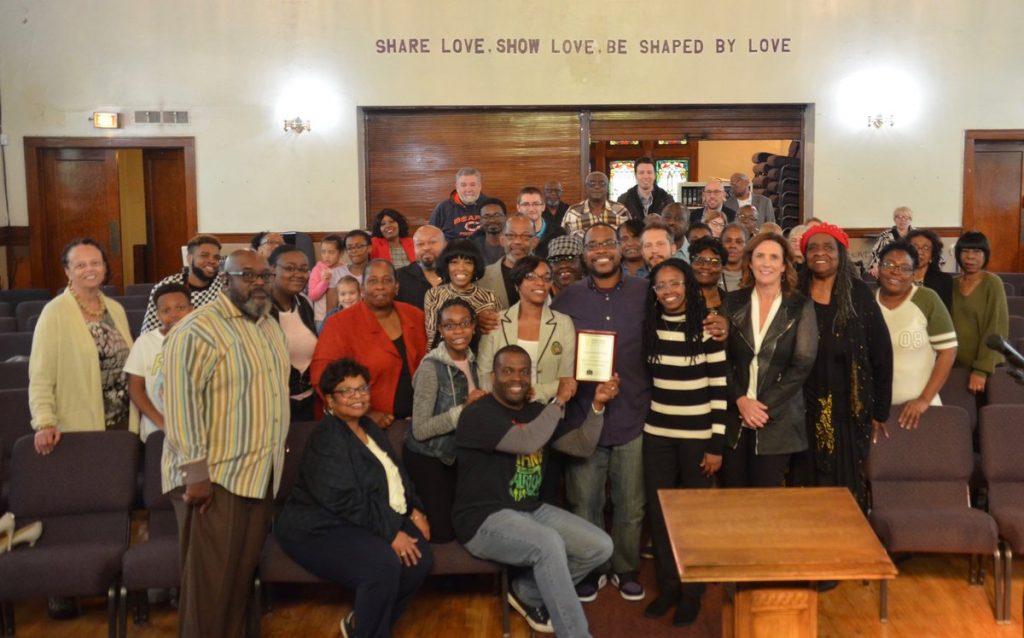
As Pastor Brooks says, ‘there are no God-forsaken places, only Church-forsaken places.’
Just as Jeremiah encouraged the people of Judah not to abandon the place where God had sent them, so the church today cannot abandon the places where it is called to serve. Getting to know our neighbours is the first step towards building the covenantal culture that will lead to renewal. One to one conversations are a necessary step towards durable relationships of loving friendship and reciprocity, and the yield is solidarity and creativity.
Small acts of grace can have an impact far greater than we first imagine.
Pastor Brooks and his church noticed that their community lacked access to healthy, fresh produce. “I thought about what I want for my family: access to high-quality food without having to drive miles away to reach it.” So the congregation pooled their money and resources and purchased food from Trader Joe’s; they then made it available through what became the 5 Loaves Food Cooperative.
The community then realised they could grow their own food, so they supported local efforts to form community gardens. They partnered with Growing Home, a local urban farm working with formerly incarcerated individuals, giving them a path back into the workforce. Using the food grown locally, the congregation then put on classes in the basement of their church sharing how to cook healthily and all about the value of nutrition.
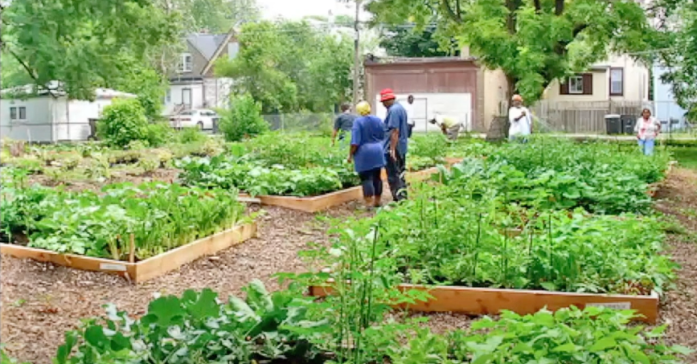
Market forces rarely serve poor neighbourhoods with quality grocery stores and sit-down restaurants. But through the efforts of the Canaan congregation, Kusanya Cafe was established, a not-for-profit providing healthy food and a community meeting place. As Pastor Brooks recalls ‘We realised that we could meet our own needs without anybody else’s help.’
One day Pastor Brooks got a call from Walter Robb, CEO of WholeFoods, the upmarket supermarket chain. He had read about the co-op’s relationship with Trader Joe’s and wanted to explore the viability of opening a store in Englewood. After close engagement with the community, a new WholeFoods opened in 2016. Local produce was supplied by 5 Loaves and other local businesses, prices of staple foods were kept at affordable levels and local jobs were created. Robb insists the store was not an example of gentrification, but ‘was born out of a deep collaboration with the community.’
Brooks confirms this, and adds that ‘this did not happen because of our church, but none of it happened without us.’ He maintains that if our own future is intimately tied to the people and place where we live, then we will have a vested interest in the thriving of our neighbourhood.
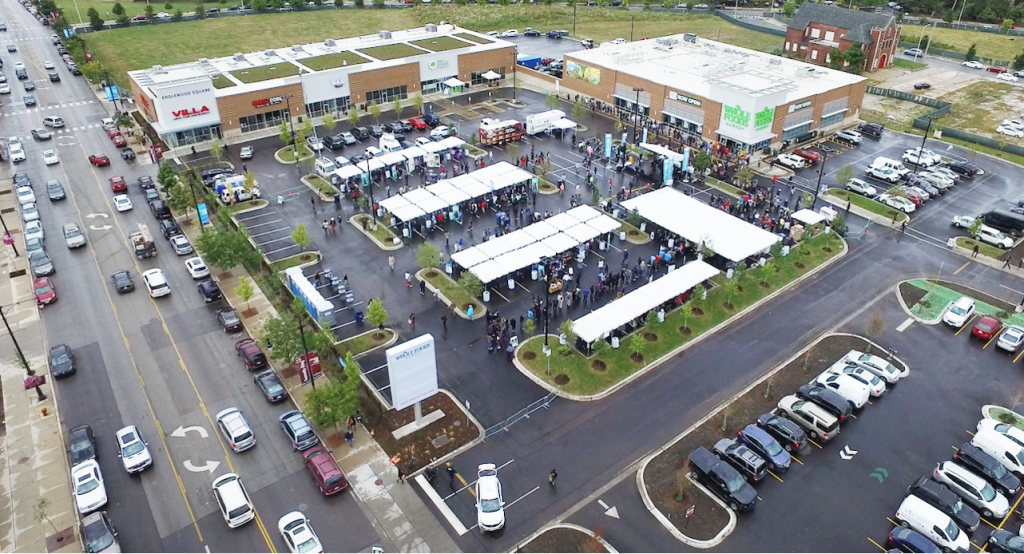
Jeremiah 29 teaches that we must ‘plant gardens and eat what they produce’. In Englewood, the church acted as a good civic neighbour with humility, sowing seeds, supporting community efforts and from this bigger social and economic benefits flowed.
This is what is meant by covenantal relationship: commitment to place, loving people and growing only at the speed of trust. In Canaan Church we see a church discerning where God was calling, to empower and strengthen the place in which it is rooted, listening to the whole neighbourhood, not just internally to its own congregation.
This means meeting Pastor Brooks’ challenge: ‘will you stop only asking God what you are called to do, and start asking where you are called to be?’ Just as God tells Jeremiah not to run away, we learn the value of serving humbly where you are and living out the love of Christ among your neighbours, not behind closed doors.
Our letter, Renewing the Covenant starts by naming the malady of modern life in the West. A life eviscerated by an operating system based on contract and transactional exchange, where what matters is determined by cost and financial value. In such a system, the common life of a society is hollowed out and people become isolated even within their own neighbourhoods. Trust breaks down and communities’ ability to overcome their challenges together is undermined.
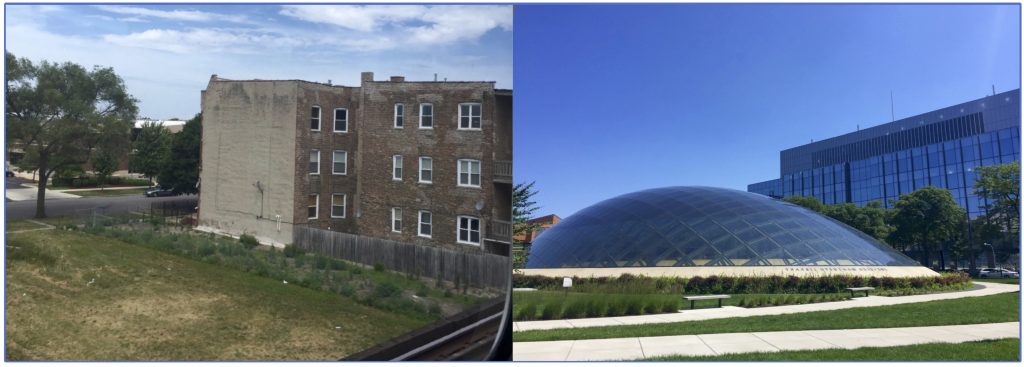
Englewood has defied market logic through a gentle relational power. A post-industrial community, just the other side of a motorway from a world-leading academic institution, the University of Chicago, yet it is isolated from it and the wealth such places bring. But the community has renewed the place where they live and done so on their own terms. A thriving social ecosystem has emerged, led by empowered residents working together.
Pastor Brooks is open about his own initial struggle, but his testimony demonstrates that churches are often asking the wrong questions. The question is not about what must be done to be successful in terms of growth. Instead he asks: ‘Where in the world might you be changed the most? Where can you live to be a little more uncomfortable? For nowhere in Scripture are we called to be comfortable. Wherever God places you, will you stop asking what you must do to be successful, and start asking where you must go to be more faithful?’
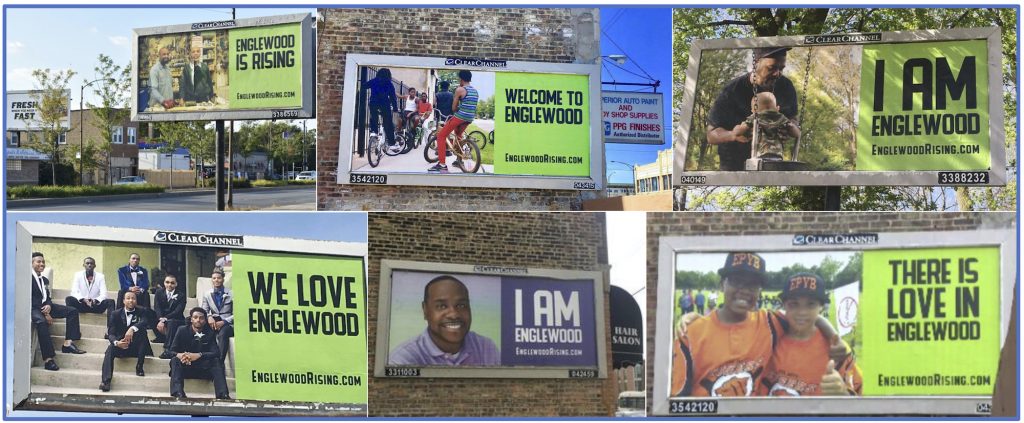
Pastor Brooks says many people visit the co-op and say, “We want to do this at our church.” He replies ‘I always ask them if they have talked to the folks in their community first. It can be replicated, but it needs to come from those most affected.’ He stresses that it can’t be helicoptered in. Hesitant to say that churches or faith-based institutions are needed to accomplish things like this, he adds: ‘churches often think that we have to lead everything… we think that if we come and help then we have to run it. Instead, we need to be just part of what’s happening in the community… Yes, we were necessary, but as partners. Not as leaders and not as the ones who tell people how it should go.’
People have often asked why Canaan Church made food justice a priority. Pastor Brooks resists this kind of framing. He says ‘the key is to become a community-oriented church, not a “justice-oriented” church.’ He contends that ‘when you begin with justice as your foundation, then “issues” are your focus. But when you begin with community as your foundation, then people are your focus. When you focus on people, you eventually deal with justice issues that those people experience, but it’s not the whole totality of your ministry. There are times when justice is not the best choice. Sometimes love is the best choice.’
Tom Ketteringham
Jonathan Brooks is the author of Church Forsaken: Practicing Presence in Neglected Neighborhoods, originator of the Walking Towards Love curriculum, and Senior Pastor at Canaan Community Church, a non-denominational church on the South Side of Chicago. Explore Pastor Brooks’ own website here. We recommend this extended interview with Pastor Brooks which has informed parts of this article. With thanks to USCatholic.org.
This article was featured in the autumn 2020 edition of the T4CG Newsletter.
If you found it meaningful, you can explore more content like it by subscribing to Together for the Common Good on Substack.
